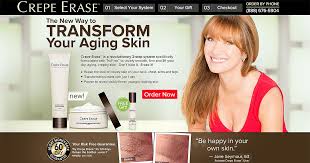Menopause+Breasts+Cancer. Know your risks
So, if we talk about our breasts, one of the topics we have
to cover is breast cancer.
Going through menopause in and of itself does not cause an
increase in the chance of developing breast cancer. But, those risk factors
that do cause it, do increase with age, and since you are entering menopause
during the halfway point of your life, you might want to take time to do some
research and prep work to decrease your chances of getting the disease, or even
to find out if you are at risk for it.
Having risk factors does not necessarily mean a woman will
get cancer, but the opposite can be proven true as well: if you have no risk
factors that doesn’t mean you are going to get a free pass, so be educated and
know your breasts.
My research has all shown me that single biggest risk to
getting breast cancer is age. The older you get, the more
your chances increase. Personal risk
elevates if someone in your family had or has the disease such as a mom, sister
or aunt.
The other biggest risk factors appear to be:
Already having had cancer in one breast
Having or had reproductive organ cancers, such as to the
uterus or ovaries
Genetically linked BRCA 1 or 2
Late onset menopause or early onset menstruation ( which
we’ve already discussed)
First live birth later in life, and/or never having giving
birth
Some women show an increase in risk if they are currently
taking, or have taken Hormone replacement therapy (HRT)
Smoking
Does breasts cancer occur if you have none of the above risk
factors: Absolutely. That’s why it’s so important to know your breasts through
monthly self exams and to get routine mammograms.
I had a friend ask me the other day if there was any
definitive way to prevent getting breast cancer. I asked a few docs, and did
another research search and the answer is: no. You can’t prevent it if it is
going to happen. But you can decrease the risks. Here are some ways to do that;
-Stop smoking. Now. And tell every woman you know who smokes
to stop. Now.
-Don’t be a yo-yo dieter. Maintain as normal and as
consistent a weight and BMI as you can. Takes steps to lose weight if your are
obese or overweight. Every single bit of research that’s been done states that
even a small decrease in weight, say 5-10 percent, will have a positive effect
on your body.
-Eat well. Stop the processed white flours, sugars, and bad
carbs. Limit the diet sodas and artificial-laden foods. Eat fresh fruit and veggies
often and everyday. Cook in natural olive oils and not fake hydrogenated oils.
Limit red meat, processed luncheon meats, and fatty foods.
-Limit alcohol.
-Move. Any exercise is better than none. Take a walk, take a
hike, run a mile, ride a bike, but do SOMETHING. Every little bit helps.
And once again, I can’t stress this enough: KNOW YOUR
BREASTS. Become as familiar with what they feel like and look like as you can.
Never NEVER skip a monthly self
breast exam or your mammograms. Prevention, education, and knowing what your
risks are, are the most important aspects of routine preventative care. It
costs no money to do a self breast exam. All it takes is a little of
your time.



Comments
Post a Comment
Share your story!